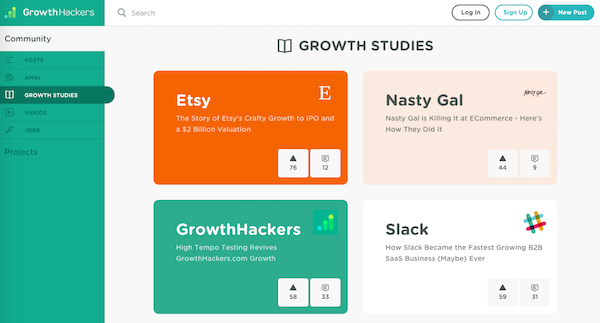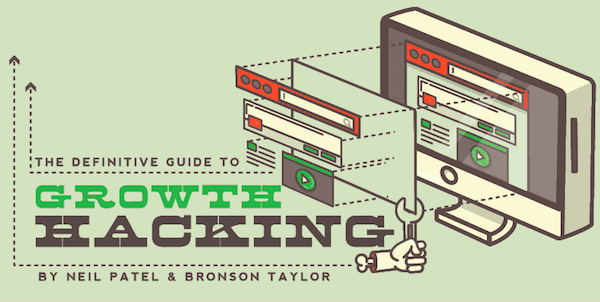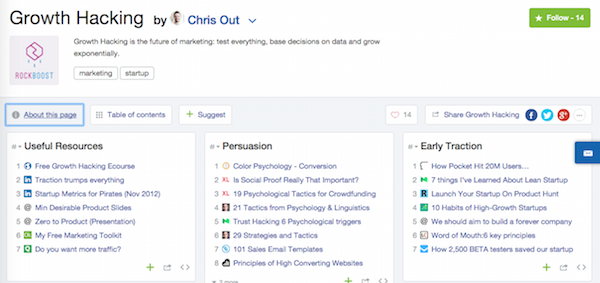If you’re new to growth hacking, it can sure be a confusing term. There are a lot of different definitions out there.
It helped me to think of growth hacking like this: internet marketing applied to tech startups.
We all know that growth is the only thing that matters when you’re an early stage startup. Rather than maximizing profits or building a passive income with a conversion-optimized sales funnel, the job of a growth hacker is to grow the startup’s user-base, and therefore the startup itself.
Most of the growth hackers that I’ve come across through attending networking events in NYC seem to be focused on established startups. Probably because those are the types of companies that can pay their salaries.
I’m not interested in that. I care about applying growth hacking to early-stage startups. Startups that can’t afford to hire a “growth hacker.”
That’s why I put together this list of resources where you can learn about growth hacking. If you’re a non-technical founder, or even a technical founder, this is a great spot to get started learning about how to grow your startup’s userbase.
1. Growth Hacker Case Studies
GrowthHacker.com is an amazing resource to learn about growth hacking. There are lots of case studies, videos, a helpful Q&A section, and more.
It’s run by Sean Ellis, who coined the term growth hacking. He also has a blog on startup marketing, but he hasn’t written on it in a while.
2. The Definitive Guide to Growth Hacking
I’m going to try to not be starstruck while I type this, because Neil Patel is an amazing blogger. In this guide, he’s put together a killer resource to break down the basics of growth hacking.
He goes through a lot of valuable topics like tactics to get users, retain users, activate members, and terminology that you need to know if you want to be a part of the growth hacker community.
3. Growth Hacker Marketing
As much as I love free content from blogs, sometimes it makes sense to invest $8 in a guide to start you off on the right foot.
In this book, bestselling author Ryan Holiday, brings you examples and case studies that you can learn from, like AirBnB, DropBox, Twitter, and more.
4. Growth Hacking and Marketing via Andrew Chen
In the article above, Andrew Chen, a well-known growth specialist in the startup realm and current employee at Uber, discusses the ins and outs of growth hacking.
I’d also recommend looking into some of the other articles on his blog, like the law of bad clickthroughs, the tech crunch bump, and how to create a great freemium startup.
5. Growth Hacking by Chris Out
Personally, when I’m learning a new subject, I just want all the articles that will tell me as much about that subject in one place. There were some good posts out there that did that, like the one put together by the KissMetrics team, but I found Chris’s compilation of articles to be particularly useful.
Using the tool Zeef, he’s put together an archive of growth hacking resources covering viral marketing, SEM, analytics/tools, and more.
Is growth hacking important?
I’ve learned a lot about internet marketing, blogging, and podcasting in the last several years since doing a bunch of failed startups and several successful lifestyle business ventures.
Growth hacking is very important and that it’s only going to grow (no pun intended) as a profession.
I do think that the term “growth hacking” might be over hyped, but it really does describe a set of skills that are becoming more and more relevant in our society.
Finally, I just want to say that if MORE internet marketers got involved in growth hacking, rather than creating passive income lifestyle businesses, I think it would be good for the tech startup industry.





